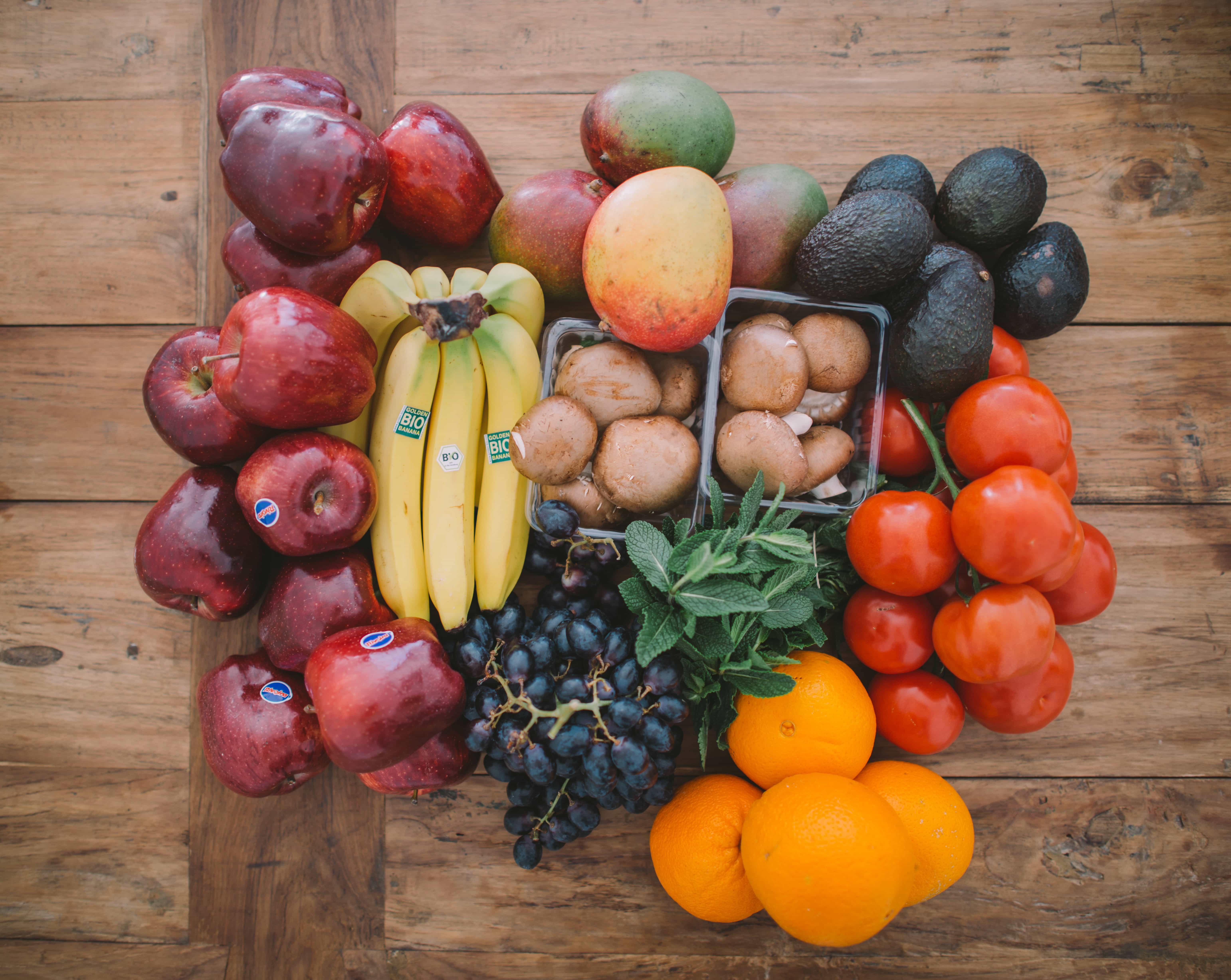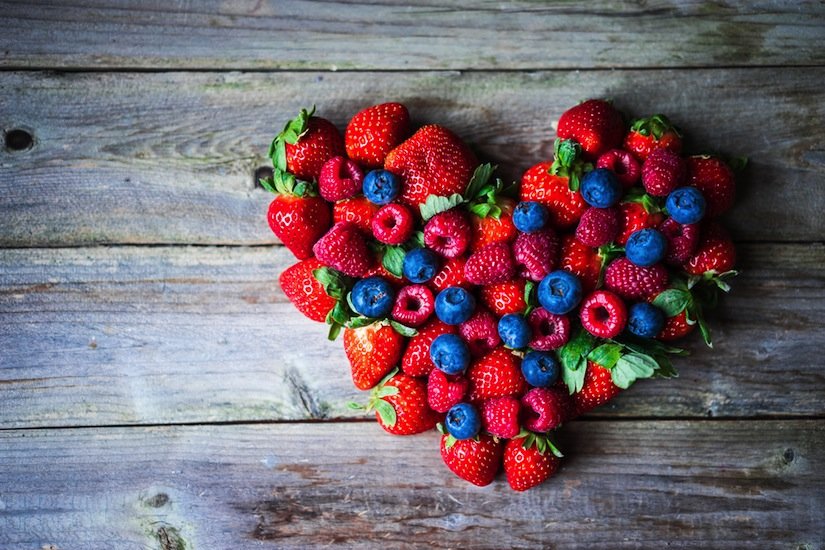
Top 7 Ways to Eat to Reduce Stress
Did you know that nutrition can help you better reduce stress? It can. Now that you are aware of the 6 ways stress is sabotaging your diet, we can move on to part two, where I’ll share my Top 7 Ways to Eat to Reduce Stress. Lifestyle strategies are included as well!
DYK: Nutrition helps your body better manage stress? Find out more! Share on XAndrea’s Top 7 Ways to Reduce Stress:
1. Make Yourself the PRIORITY:
“You are the most important person in your life.” This was said by the yoga teacher in class this week and made me think that making yourself the priority is not selfish. Instead, it’s a powerful stress-reduction and burnout-prevention technique.
Remember YOU are the most important person in your life. This isn’t selfish. Share on XWhen people are stressed, we often sacrifice our own wellness and needs for others. For example, we will stay late at work, over-extend ourselves to show up for events and sacrifice our sleep and sanity, all to try to “keep up” with our hectic lifestyle. I know from personal experience that when we are consumed with pleasing others, making ourselves a priority is impossible. Therefore, if you feel stressed, first, allow yourself permission to make YOUR needs the priority. Think of the airplane scenario; put the air mask on yourself before putting it on your child. This applies to life as well; you are no good to others if you are depleted of the metaphorical oxygen.

Without confidence in implementing this strategy, the following strategies will likely be unsustainable since they all require prioritizing your needs.
Action Step:
- At least once a day, sit quietly and listen to your body. See what you are feeling; what do you need? Do you need time to relax, do you need a change of scenery, do you need a shoulder to cry on? Perhaps you need to say no to some of your commitments.
- When emotions are bottled up and we continue to push forward, we are ignoring our internal voice and keeping our bodies in “stress-mode.” Your body wants to speak to you and deserves to be listened to. Emotions bottled up can negatively influence our feeling towards ourselves, our interactions with others and emotionally trigger unhealthy eating habits.
- Allow yourself to experience your feelings and respond to yourself with deep compassion. This new way of dealing with stress will help you to become comfortable with uncomfortable emotions. It will also help you prioritize your needs by making time for you!
2. Avoid Skipping Meals:
When we get used to making ourselves a priority, our next step is to fuel or nourish our bodies regularly. This means prioritizing eating! Sounds easier than it often is for busy (and stressed) individuals. Remember that healthy eating does not mean deprivation or restriction, but instead, providing yourself with wholesome, balanced meals – three times a day. When we skip meals, our bodies perceive this drop in energy level as a “mini emergency” which puts us into a type of “stress mode;” we then drop to slowing metabolism and promoting fat storage. When we go long periods without eating we will find ourselves soon ravenously seeking foods, looking for less healthy options and consuming these foods in higher quantities too. Our bodies also store these calories differently because we become uncertain when our next meal will be coming. To keep your body out of “fat-storage” and “stress-mode,” it is important to have regular, nourishing meals.
When we skip meals, our bodies perceive this as a “mini emergency” Share on XAction Step:
- Plan a predicable meal schedule; enjoy three meals a day and no longer than six hours between meals. Some of my clients make calendar events to block their schedule to take a lunch (away from the desk). Undistracted eating leads to increased productivity and mindfulness while eating.
- Have breakfast (even if you do not feel hungry) to stabilize your blood sugars. Click here for inspiration to balance your breakfast.
- Check out resources for how you can make breakfast a priority on those rushed mornings and how to tackle lunchtime challenges.
3. Choose Nutrient-Rich Foods:
The types of foods we eat can improve (or worsen) stress. Choosing comfort or junk food end up worsening stress because these high fat, high sugar foods are void of crucial vitamins and minerals needed for sustained energy. Instead, if we choose nutrient-rich foods, we can support our body in feeling good and reducing the body’s stress response.
Good nutrition helps our body to function well, improves our immunity, mood, energy and reduces risk for a host of diseases. Eating well is also a form of self-care.

Foods to Emphasize:
B Vitamins:
Our bodies use B vitamins to convert stored energy into fuel. This means that you can feel more energetic and focused. Vitamin B6 helps to make serotonin, our happy hormone. To increase your dietary intake for B vitamins, include foods such as: leafy green veggies, nuts, seeds, avocados, meat, fish, chickpeas, potatoes and bananas.
Magnesium:
Magnesium is often known as the forgotten mineral, because people are often not getting enough in their diets. It helps to relax muscles, preserve bone mass, and reduce anxiety and cardiovascular disease. Magnesium boosters in your diet could be nuts and seeds, like pumpkin seeds or Brazil nuts, leafy green veggies, whole grains like oats, brown rice, quinoa, milk, beans and lentils. Read more about top dietary sources here.
DYK: Magnesium helps to relax muscles, reduces anxiety & cardiovascular disease Share on XVitamin C:
Vitamin C helps lower the body’s response to the stress hormone cortisol. This is because our adrenal glands, which are responsive during stressful episodes, contain the largest store of vitamin C in the body. Therefore, consuming foods like oranges, strawberries, kiwis, tomatoes, peppers, and colourful veggies can help to improve our body’s response to stress.
Omega 3:
Fatty fish (such as salmon, sardines, mackerel, etc.) are rich in omega-3 fatty acids, which have been shown to reduce stress hormones. Health Canada recommends adults consume at least two servings of fish per week. One serving is equal to 75 grams or 2 ½ ounces or half a cup of cooked fish. Click here if you are interested in the difference between wild versus farmed salmon.
4. Prepare Healthy Snacks
Since people are busy, preparing healthy snacks ahead of time is a way of nourishing your body no matter where your day takes you. When you are choosing nutritious snacks, be sure to read my post how to snack like a dietitian and use my snacking formula for choosing the most filling snacks.

Download a copy of my FREE 25 Energy Boosting Snack ideas!
Action Step:
- Include nourishing carbohydrates in your snacks to boost your energy and serotonin (happy hormone). If you are carb-phobic, find out why you need to stop the carbs hating!
- Include a balance of complex carbohydrates like whole grains, legumes and fruit and protein in your snacks. One of my favourite snack options is some Greek yogurt with orange segments.
- Be sure to distinguish if you are eating for hunger or stress eating to comfort or distract yourself. Sometimes, we don’t need a snack; we need fresh air, a good stretch or a chat with a friend. Working with a dietitian can help you manage your eating habits and responding to internal body cues and emotional triggers.
5. Start to Meditate
Meditation is really increasing in popularity as a powerful stress-reduction technique. Top executives and entrepreneurs have been very open about their meditation habits for stress reduction. Meditation works by focusing us on the present moment, slowing the mind, and feeling what’s going on within our body’s for peace and calmness. Scientific studies have shown that meditation helps to lower cortisol levels. When people are able to feel less stressed, we see a cascade effect with better self-care, better eating habits, better sleep, less chronic disease, etc. In my practice, I find that stress reduction is one of the most important predictors of lasting change. If we can lower our stress it is easier to practice new healthy habits instead of the stress-driven default mode.

Action Step:
- Take 10 minutes to meditate at a designated time.
- Try downloading a free (or paid) meditation app on your phone.
- Make meditation part of your routine like brushing your teeth or showering. You might just find your productivity and mood boosts.
6. Reduce Caffeine:
Caffeine acts as a stimulant and can increase the stress hormone cortisol when consumed in high amounts. You do not need to eliminate coffee; however, you do want to ensure that you are not overdoing it.
Action Step:
- Health Canada recommends limiting your coffee intake to 400mg daily, or about two cups daily.
- Check out common caffeine amounts in common beverages here.
- Swap out caffeinated beverages for a lower-caffeine alternative, such as decaf or tea. Avoid caffeinated beverages after lunch to improve sleep.
7. Seek Extra Support:
Remember that you are not in this alone. There are many different options for professional support. If you find that you are feeling out of control with your stress, changes in sleep, increased anxiety or emotional eating, it is worthwhile to seek outside support. Speak with your doctor about your mental and physical health. Many find benefits in working with a professional such as a therapist, registered dietitian, or massage therapist for additional guidance and support. Everyone faces stress, and asking for help is a sign of strength, not weakness.

Bottom Line:
Stress is one of the biggest and often overlooked health problems facing people today. Stress can increase your risk for health conditions such as heart disease and diabetes, cause us to store more fat, increase our appetite and cravings, disrupt our sleep and impact our mental health. All of these factors impact our diet and our eating patterns. Making yourself a priority, having regular meals, and boosting your intake of key stress-fighting nutrients are some of the ways we can better manage our body’s stress response. Stress does not have to be our default mode. Let’s take this seriously and take action to decrease and better manage stress. Your health depends on it!




